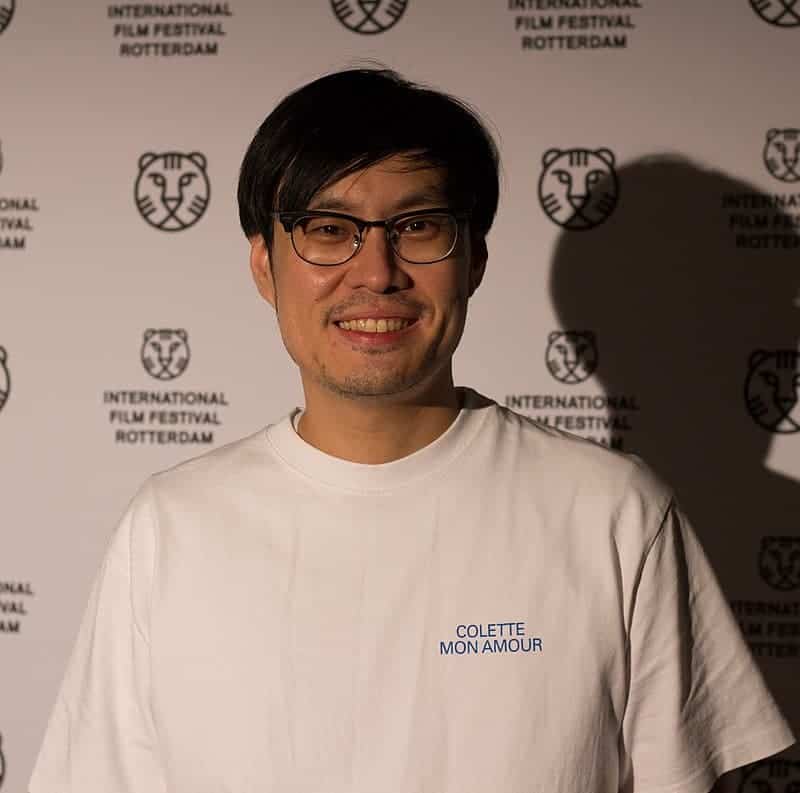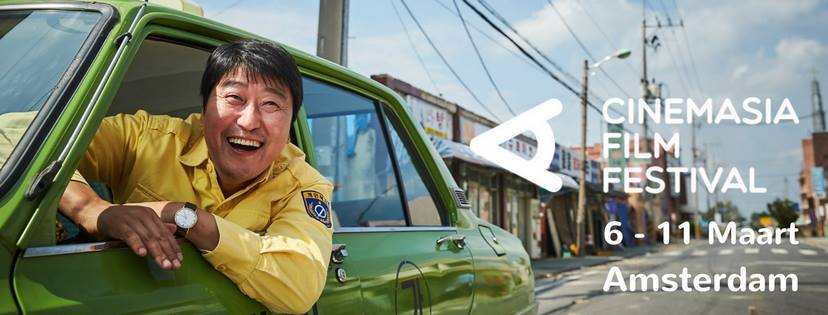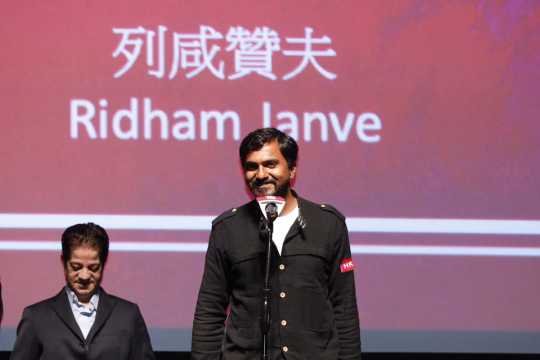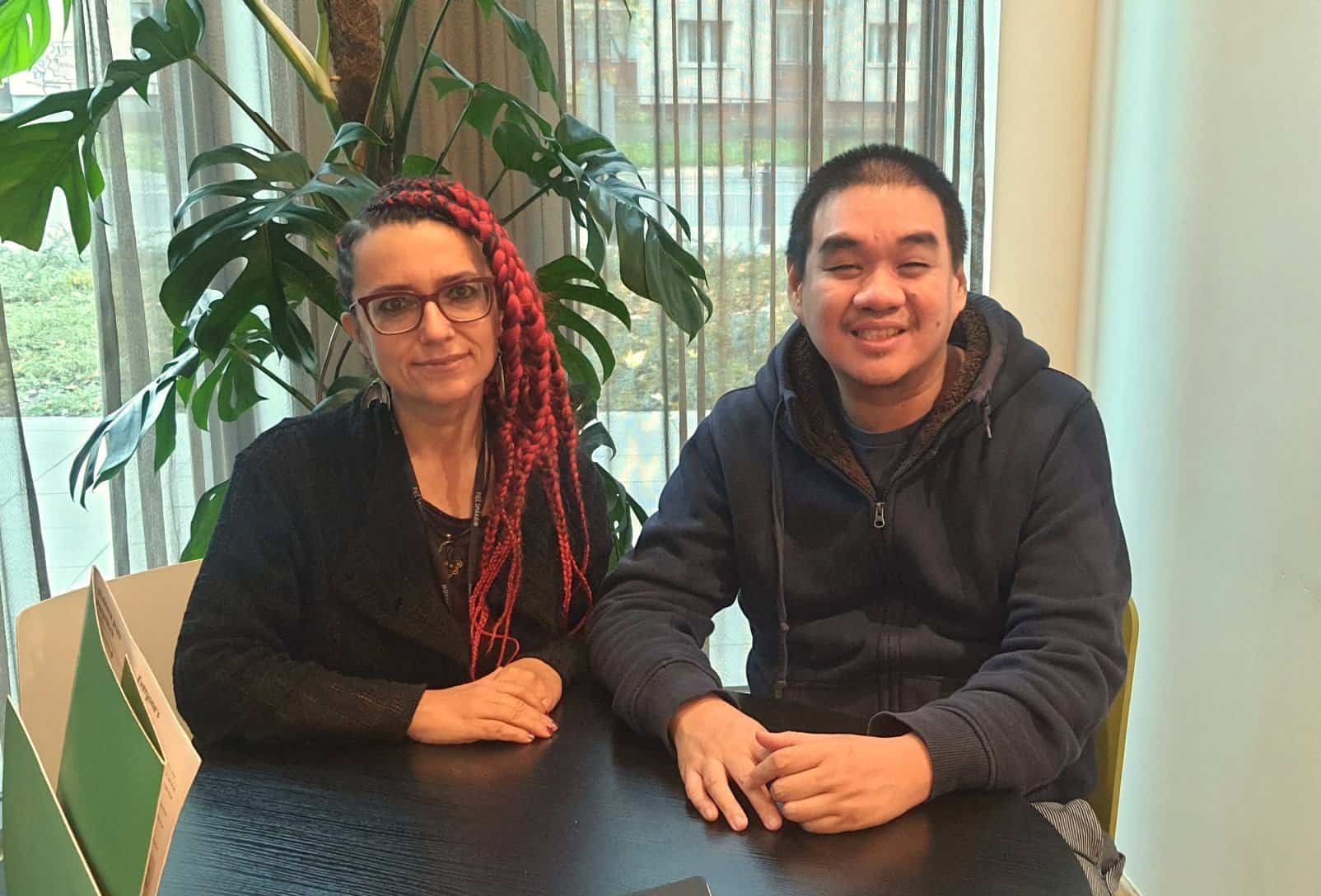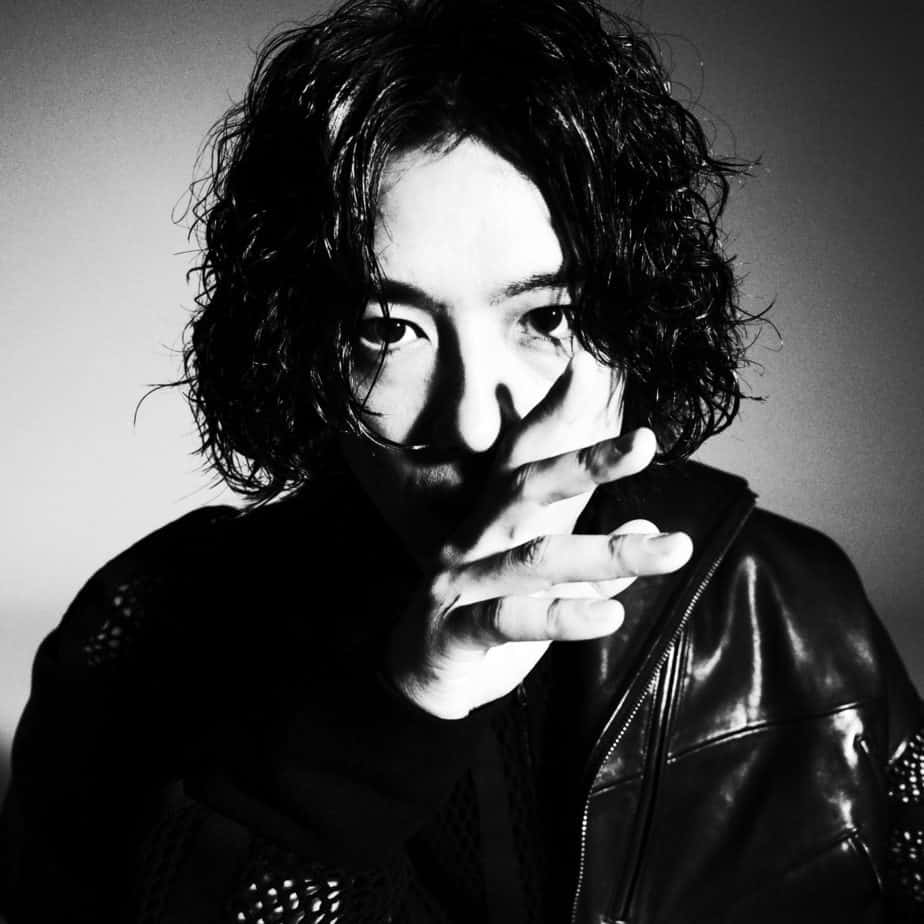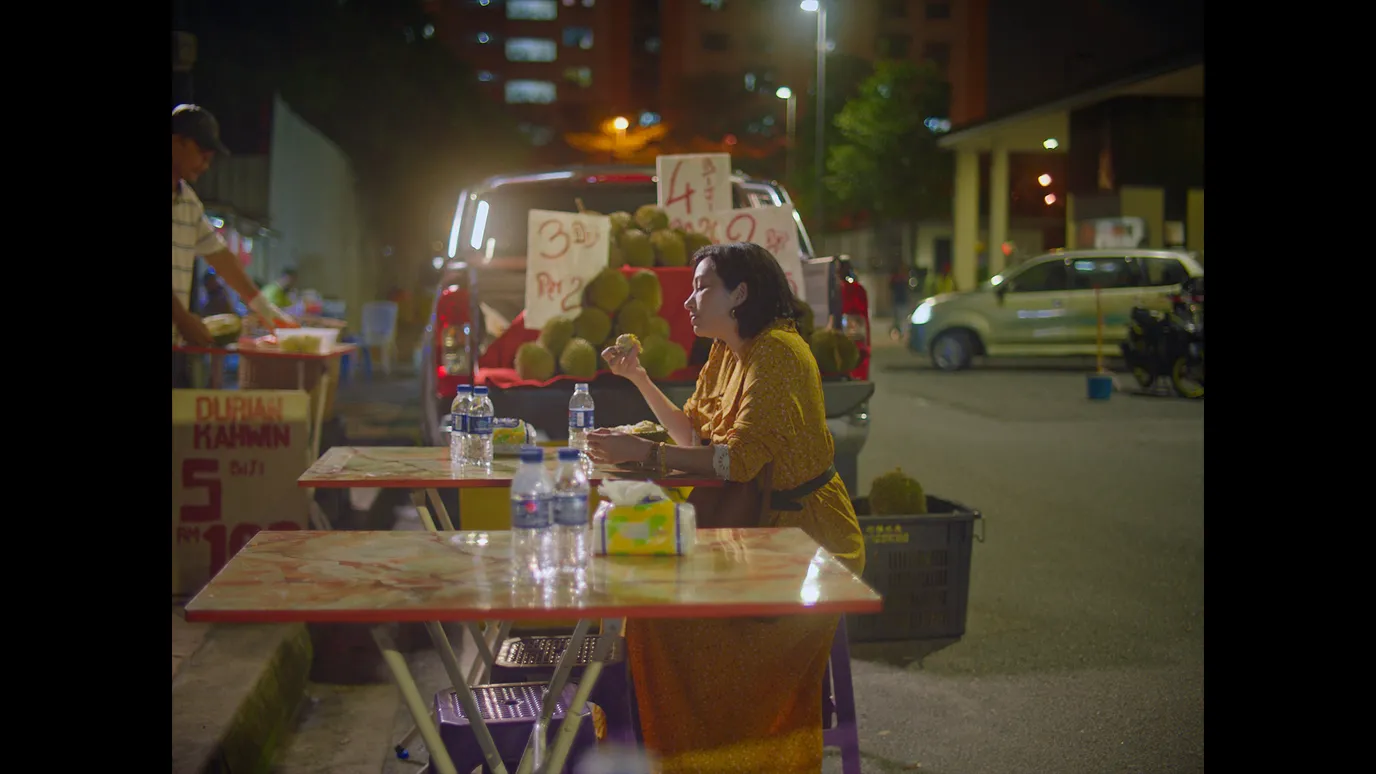When Jean, the protagonist of “Happy Old Year” (2019),a recent feature from Thailand's most interesting voice of independent cinema, Nawapol Thamrongrattanarit, decides to become a believer of minimalism and get rid of things in a way Marie Kondo would encourage her to, she then finds out it is the task not only connected to material objects, but rather affiliated with memory. This is December 2019 when she starts re-negotiating with her past and begins the process of giving back personal belongings to those whom she unexpectedly and for some unknown reason stopped seeing. In typical for his minimal aesthetics and daring compassion towards Thai modernity, Thamrongrattanarit comes back with once again a very humble and honest depiction of millennials that would bring you the warmth and digital romanticism of his debut, “36″ (2012).
On the occasion of “Happy Old Year” screening at International Film Festival Rotterdam , we managed to have a conversation about minimalism and memories with Nawapol and together we also prepared a manual of how to get rid of things for those who actually experience a struggle with overcoming it.

Łukasz Mańkowski: The film tackles the problem of a general tidying up, getting rid of things and becoming a believer of minimalism – was there any specific moment in your life that inspired you to make the film?
Nawapol Thamrongrattanarit: It is basically based on my own experience, because I do indeed get rid of things annually every December. My room might not be the smallest of places, but I've lived there since I was a kid for almost 30 years now. Trust me, there are a lot of things. I've started cleaning them up about 5 years ago and I do it every year since then. At first, I just thought: “oh I just need to get rid of things”. And after 2 or 3 years I've started to realize that the thing is – it is really not about material objects. This is about the decision to discard something and behind that something there is always a story. It is very difficult to remove that thing and simply throw it away, as it is not entirely about discarding material objects but rather memories; it is especially hard with the good ones. It's like memory management – sometimes we just have to tidy things up, even the memories, that obviously mean more than material objects, because they are connected to people. Sometimes you need to forget some memories, sometimes you need to keep them and sometimes you need people to forgive you. If it is a material object, it is possible for you to just throw it out yourself, but with memories, well, you have to negotiate either with them or yourself.
Don't you think that sometimes we end up perceiving people through the things we are surrounded by?
Yes, it is possible, but I think if it exists, then it happens on a very superficial level. You can tell about some of it, but not the whole. Sometimes some objects have a story behind them, but if you don't know anything about the owner, then you can't go deeper into knowing what is really there. For example, the reasons to buy stuff from Ikea is probably the same for most of people, but for some of them it might be even mysterious. To some extend, it might be the case, but not in general.

There are 6 steps of how to get rid of things in your film, “Happy Old Year”. I'd like us to go through all of them and create a manual for people that have problems with getting rid of stuff.
Haha, yes – let's do this!
The whole thing is based on a Japanese method invented by Marie Kondo (called KonMari Method) and her idea is to leave only things that bring you the spark of joy (tokimeku) – what is there in the world that brings you that? What is something you wouldn't get rid of and throw away?
I think these would be memories. It is very hard to even manage them. For instance, when you want to discard something, sometimes there are some memories, even if these are the bad ones you really want to get rid of, you can't really throw them away. They exist forever and stay with you. Sometimes I try to compare minimalism to Buddhism, because I think the hardest part of being a human being is that when you have a heart and emotions, you also have a lot of memories. As I said, sometimes, if it's in our control, then we can manage them, and then the memories might be about bringing the spark of joy, but they might as well be the reason for our pain. And then we can't do anything about them, they're outside of our control, and that is beautiful as well.
What about photographs then?
With photographs it is one thing, with them I can… well maybe… I have a lot of photographs and I think this is actually the stuff that I've kept with me the most and haven't got rid of for many years. I still keep them and they're simply with me.
During the film I thought a lot about your debut – “36” (2012). It is also about digital storage of memories, about managing them. In the moment when Jean finds the first photograph of their friends who are about to get married, it is such a powerful moment. I must say, it brought me to tears. In a beautiful and simple, yet digitalized way – you show how memories are so directly connected to photography.
Yes, they are a simple sample of how human beings keep memories, it is very direct. Sometimes for me it is not about the object or the photographs, because currently it happens that I see my mind as a room, something abstract, like a notion. The object in my head is probably the hardest thing I have to manage and take care of. If you asked me few years ago, I'd say – yes, photographs are manageable memories. Sometimes you don't have any objects in the room, but you feel heavy in your head. In some situations, in which I'd like to discard them and get rid of, I can't do it and eventually I am unable to do it, because I don't know how to remove them. And this is the beginning of this project – “Happy Old Year”. The story starts from cleaning up the room, but the real thing is cleaning up memory and the film becomes about how human beings erase memory. It is different in concept than “Eternal Sunshine of the Spotless Mind” (2004), which is totally abstract, because in real life we don't have that company that can help you with your memories. It is important to find a right way to remove something. For the character like Jean in “Happy Old Year” – she thinks if she goes back to her past to say sorry or tell her ex-boyfriend something direct about her mistakes, she will be forgiven for that. This bad memory will be gone. You can't actually expect that from a person. This film is like the dark side of “36”. Even though you don't have objects or photographs, you have memories in your mind and it's good, it should be like this. They will stay in your head forever, bad or good ones, you can't remove them. “Happy Old Year” is about bad memories or feelings that you can't get rid of, even if you try so hard. For instance, you can try to delete these people – and memories of them – from your Facebook friend list, they will be deleted in a way, but will stay in your head. It is a simulation of removing people from your life, but it's very cold. In Thailand, the audience disliked Jean very much. They thought she is a very cold and bad person, they really hated her, because she seems not to have any care or feelings towards people. But I understand her and I feel for her, because I think she tries her best, even though she fails. If she gives back the things to people she knew, she might feel better, they might want to forgive her. But we have to keep in mind that everyone has their own reason to do what they do: forget and forgive.

Let's move into the 6 steps. The first one – ‘set goals, find inspirations'.
It is a very hard and long process. You must find a goal in your mind. Cleaning up the room needs some goal and inspiration to find a way to fulfill our dreams. You must negotiate with other people and yourself all the time. You need the goal to negotiate with your memories as well, because if you don't find one, then you can stop at any time.
What if this inspiration or the goal eventually doesn't show up?
I think we can't finish it, then. I know everyone around me, in my house, and it's like, if you don't find the goal, we can't negotiate with the people and we can't make a decision, because we end up not knowing what to do. It is our personal dream and no one understands it, so we have to hang into this inspiration, hold it for ourselves only in order to move on. For example, Jean has very strong inspirations, she sticks to them. She knows what to do, to make it happen. I tell this story through these kinds of rules, because people don't embrace it. Sometimes to do something, you have to do something brutal, even killing something or someone. If you don't do it, then you might not finish it. For instance, when the committee selects films for the festival, they have to pick several films up and reject the others. They can't select all of them. You have to know yourself and what goal is there with you. You have to know some principals, philosophy or a perspective – I choose these films and this is my commitment and I have to know why I haven't selected the others. I think it's quite the same.
The second one – ‘stop reminiscing the past'.
It is the main obstacle of getting rid of something. It is the easiest and most important part. If you want to get over something, the first thing you think of is its past and you need to get rid of it in order to move on. Past might be a personal memory, sometimes it is connected with money – because you might think it will be expensive in the future. But you never know what will happen, so it is a general advise for the audience, because that will be one of the first things you will struggle with. I like comparing this thinking with Buddhism. It teaches us about being in the present. If something happened already, then it's gone, we're in this moment right here, right now. I try to practice it very often. If you think about the past – well, if it's good, then you'll be happy. But if the past is bad, then you will not know what to do, since it's gone, but some feelings are still in your head. If you try not to think about the past, you will be in a more stable state – no past nor future. To me it's the right path to live your life like this, but it's actually very hard for people, because by nature, we always think of the past and our memories. We have a goal to live our life and when we think about the past, we can't control how we think of it, and how it will influence our future.
The third one is: ‘don't think too…
Nawapol: …much'. I think it is the same when we started talking about having a heart. When I began working on the script, I read many books about Buddhism and I found an idea that could be interesting for my story. In Buddhism there is of course a Nirvana state, which basically it is a zero state – no feelings, no happiness, no sadness, it is a state of emptiness, without a heart or emotions. It might sound cold to people, but in fact, if you don't have any emotions, it can make the whole thing up. The philosophy of Buddhism includes the idea of being reborn. When we will be reborn in the next life, it is like being granted with another chance of achieving this zero state, and then perhaps, you won't need to be reborn again. Of course, in real life, if you do something like this, you end up being perceived as a heartless person.

I have a feeling that you also try to achieve this zero state within your aesthetics, which, from your debut in 2012, heavily bases on minimalism.
I think my style would be heavily influenced by my love to analog aesthetics. In terms of minimalism, when I make a film, I put myself as an observer. Almost everything is observing, you know. The audience is the observer of a situation. The characters just live their life and people just observe what is going on in front of them and they have some idea of what happens in the film as well. Thai audience is really used to very mainstream situations. For instance, they know that this particular scene is just for crying, just for emotions. But I try to do this in a different way. I just show some situations to the audience, but it has a distance. This is also very connected of how I want to direct films. You remember “Heart Attack” right? This film was 50-50 between me and my studio. “Happy Old Year” is me in 100% for the first time. It is the first time that my style finally meets the general audience. And I need an active audience to watch my film. I don't want to tell them everything; instead, I invite the audience to have some exercise. I want them to become the observers. Therefore, my characters, they do not always tell everything, nor there is a music score that will determine their feelings. It's quite different from the mainstream film and that is a reason my film is like this, minimal. Of course, it's normal for the festival audience, but for the general one, it might be even strange. But we need to find a group of an audience, we need to look for it and make them be used to it.
While watching your films, I'm always trying to find these small things, like messages in short sentences that are somewhere there hidden between the characters and their reality. There is one I particularly liked: ‘lost in space'. It connects with the next step: ‘don't add more things'. My question would be – how not to be lost in space and how not to add more things?
Very hard question! (laughs) I think you have to know yourself. In my case, I started to practice this kind of thought, because I like photobooks and I used to buy plenty of them. But my shelf is full of them now, so I needed to stop doing that. Sometimes you just open it, you like it, you buy it, just like that. In 4 or 5 years, you will probably not going to open that again. Sometimes we look at something for 5 minutes in the bookstore, we buy it, but in fact, it's not entirely necessary in our life. When I look at things, I start thinking, if I really want it or not; ask myself – will I really use it in the future? We have a very limited space, so we cannot have everything, we need to know what we want for real, we have to know the limit, so we can become aware our necessity of owning, what we have to really put in to our lives.
The sixth step – ‘don't look back' – it is something we discussed before, but how would you say it becomes achievable not to look back?
I wrote this rule, because in this part of the film when it appears, it is connected with the photo that is very important to Jean's past. It's all about looking back through a picture. This film is all about memories and seeing something. When you see something, you have memories. You get a responsibility of it, because you've already seen it. What I'm trying to do is solving the memory. Don't look back, because it's about seeing. When Jean is looking into empty space in the final scene, she sees something anyway, so it becomes about the way we perceive things, how we look at them and how we see them. If you don't look back, you won't have a memory, so it also becomes about seeing the memories. When you saw, you saw, you can't undo it, once seen it cannot be unseen.
I think you managed to find your own language in terms of aesthetics and memories. There is some connection between two of them and new media as well. Do you think that the digital era can be romantic? Do you believe in digital romanticism?
I think every era could be romantic, if you find certain romantic points and moments. For me, in the digital era, we just changed the medium, but human relationships stay the same. We just changed the time and space, we changed the medium that we communicate through with each other. As a matter of fact, our core of being human, which is relationship, it's just more complicated, because we can communicate from a distance, we can store a ton of memories, which couldn't have never happened in the past. We have new behaviors, we know more people and have more in common with them, but it traces back to the basic of human relationships – we still need them and we need to be in them. It's not like we are in digital era and we do not need love anymore. We still need the same love that was in the past and that thing will not change.
One last question – on your t-shirt I see: “Colette, mon amour.”. It's a documentary, right?
Yes, it is. I bought it in London. It will be released in Paris soon.
On their website, there is one sentence that fits somehow the context we've just talked about. Could you read it?
All good things must come to an end. Oh god, yes… Some day.
Interview held on the occasion of International Film Festival Rotterdam 2020 by Łukasz Mańkowski.


